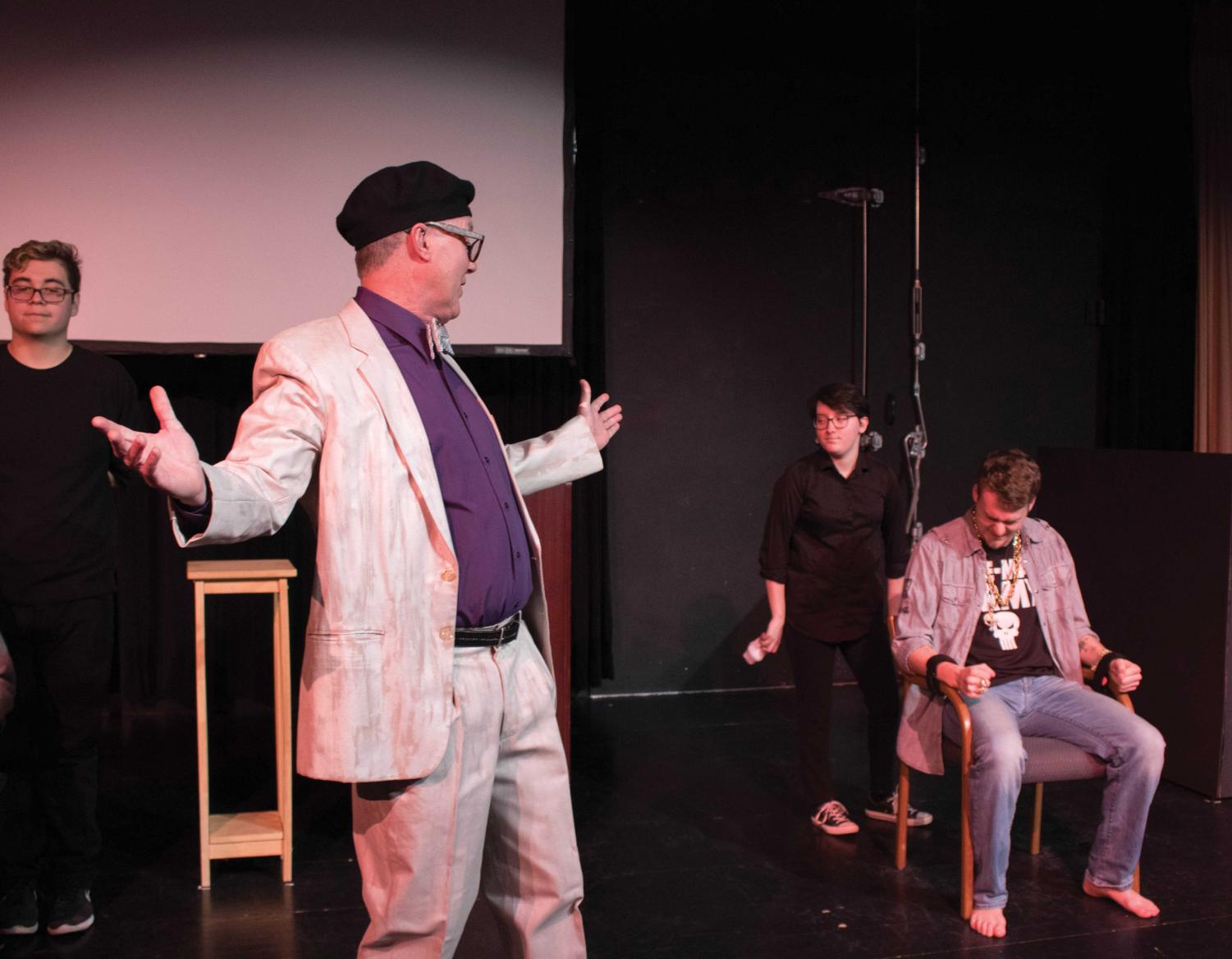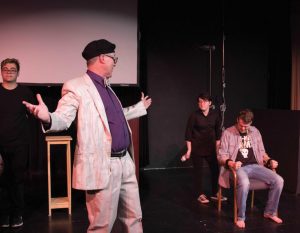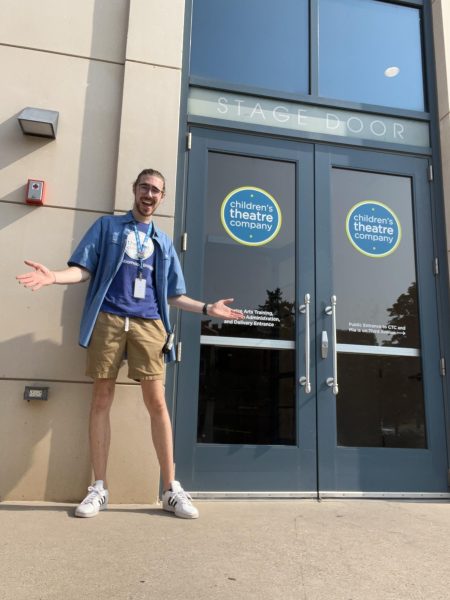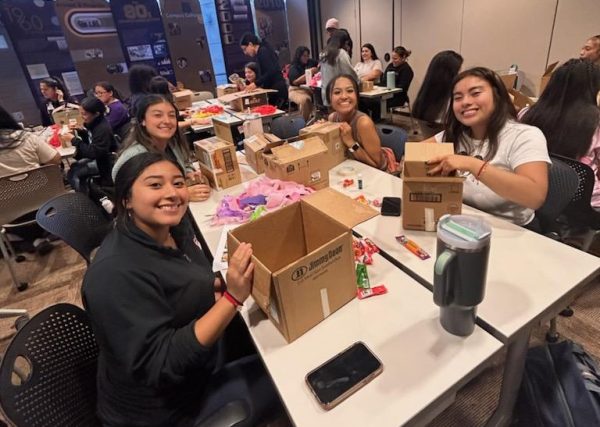‘Ezra’ offers witty social commentary
Mar 11, 2019
This past weekend, the cast and crew of “Ezra and Me” transported the UNI Interpreters Theatre seven years into the future onto the set of a dystopian game show named “In Jeopardy.” Written and directed by graduate student Jim Keane, I was thoroughly impressed by the show’s witty social commentary, unique presentation and consistent energy.
“Ezra and Me” was an immersive theatrical experience that put its audience right into the action and story. Evangelical Zealotry and Reasonable Accountability, or EZRA, is a future entity that kidnaps outspoken religious but sinful celebrities and pits them against each other in a game that puts their body parts and lives on the line. In order to win, the involuntary contestants must provide more “true Christian answers” to moral and political questions than their opponent. The loser is sent to face “the Hand of God” at the end, facing physical torture in retribution for their wrongdoings.
“Ezra and Me” depicts the Lenten episode of the dark web broadcast. It features Bert Ronaldson (Austen Carnahan), an NFL all-star who thanks God for his on-field success but is a predator towards women in real life, and Reverend John DuPrey (Easton Carber), a greedy televangelist who convinces well-meaning religious people to fund his billionaire lifestyle with their donations. Alex Sage, the show’s host, is depicted by Keane himself. His assistant, Kim Harbinger (Brittanee Leege) explains the rules and procedures from behind a desk of controls while the show’s interns, Angela (Lexi Bibbs), Stanley (Richard Campos) and Jackie (Cara Hassenstab) facilitate the game, sometimes with force.
The play’s audience was joined by a lively chorus ensemble (Ray Smith, Maggie Brown, Mallory Park, Ernie Toutant III, Preston Ellsworth, Alissa Dengler, Cecilia Cerja) who portrayed a live studio audience, making the experience as a theatre-goer more participative as Gemini (Gannon Haile) is called up to spin the question wheel. Later, characters emerge from within the crowd itself to add more commentary and realism to the show. I especially enjoyed this audience participation aspect; this destruction of the fourth wall made for an engaging experience with an element of surprise.
Going into the black box theatre setting with only basic knowledge of the show from its promotional material, I was worried that a play with these circumstances could be preachy and absurd, or even offensive. None of this was the case for “Ezra and Me.” Sure, being an abstraction from the reality we live in now lent itself to some comic oddity, but the humor of the piece was genuine and well-constructed. It provided commentary on the political leanings of some American Christians by examining the rhetoric used to justify their stances on topics like the border wall and gay marriage, in contrast to the teachings of Jesus in the Bible. The show did not disprove right-leaning logic in a way that condemned Christianity; rather, it pointed out the individual hypocrisy of some Christians, condemning their un-Biblical ideologies.
I believe there was a lot to be learned from this show, no matter your position on the political spectrum. Keane did an excellent job with this thought-provoking, psychological script. He also did a great job as the host of the show.
“Ezra and Me” maintained a high level of energy the entire time and kept me entertained and invested throughout. The pace of the show was well-balanced, with commercial-like interjections from Ezra (Moriah Henkelman) added a realistic TV element that added to the dystopian anxiety the play feeds upon. This attention to detail and repetition that Keane incorporated into his script added to the mental thrill of the play.
The show’s television studio setting and subsequent dramatic format was intriguing and perfect for the Interpreters Theatre’s black box space. The intimacy of the show furthered its message about our humanity, and the emotions I felt throughout as an engaged audience member was impactful. I find myself still thinking about its messages about ethical accountability and moral righteousness on both the right and left sides of politics.
If there were any identifiable goal for a show like this, it would be to make their audience think critically about their moral beliefs, and this show exceeds that mark of purpose. I applaud the cast and crew of “Ezra and Me” on the successful execution of such a meaningful and progressive production.






















